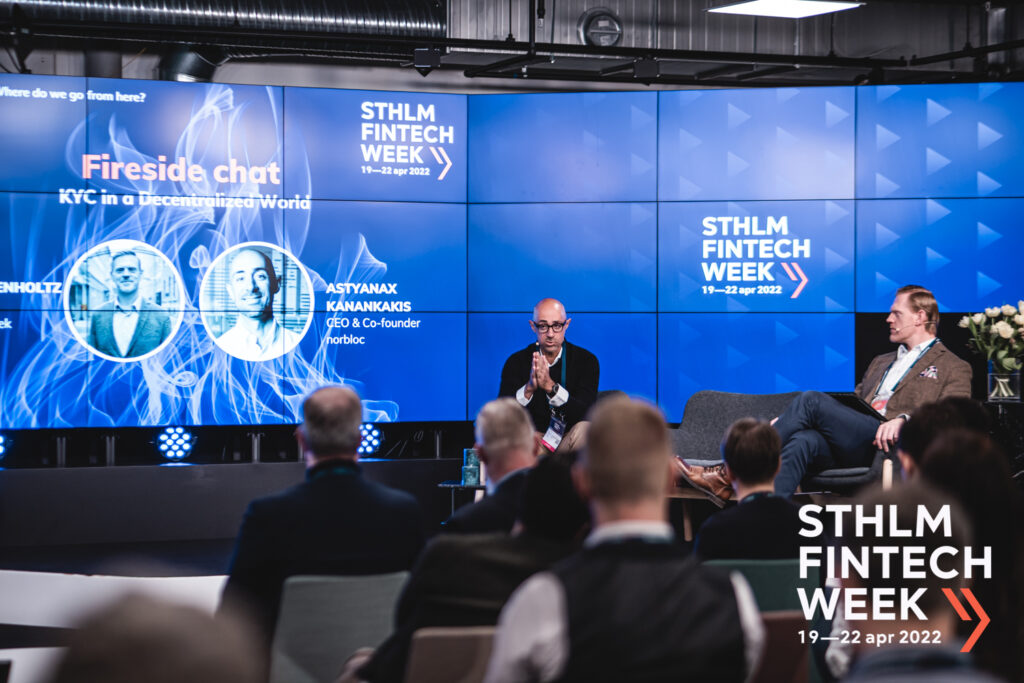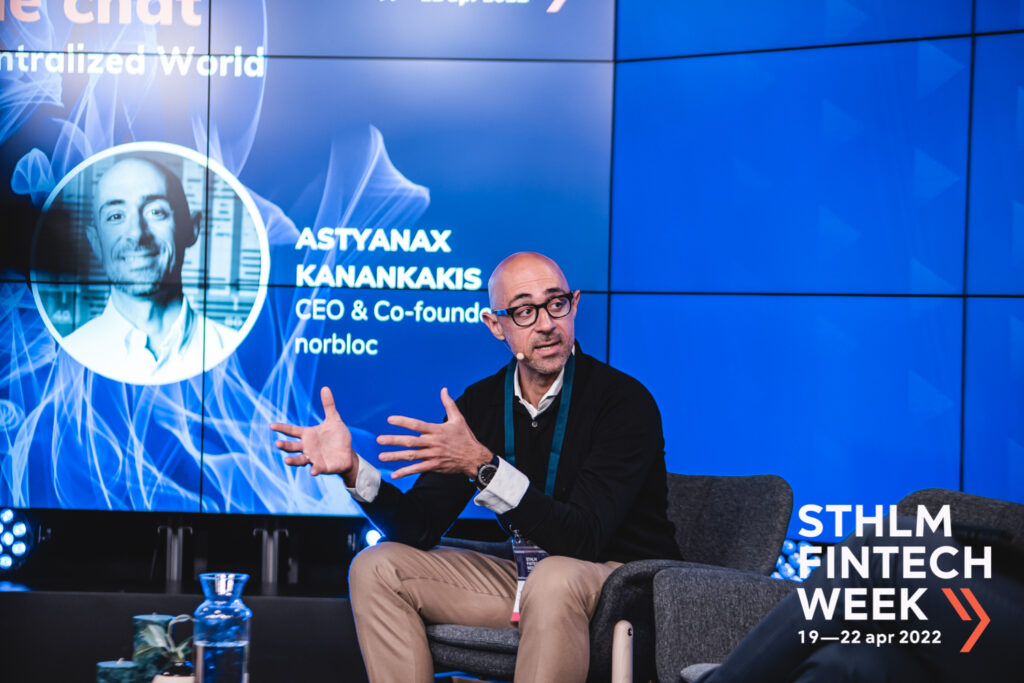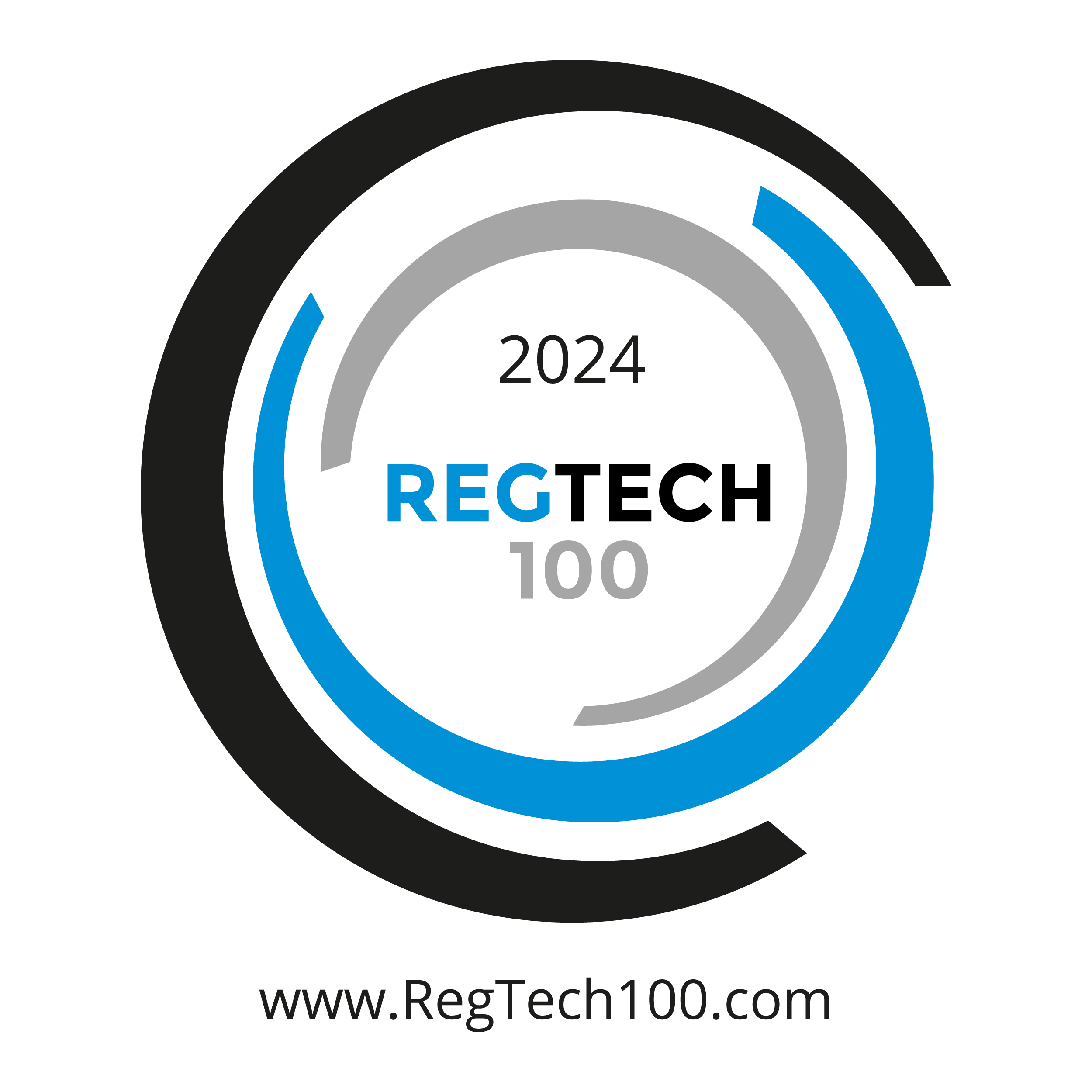Astyanax Kanakakis, CEO & Co-Founder at norbloc, shared his perspective on KYC in a decentralized world during the fireside chat hosted by RegTech Vertical Lead, Richard Rosenholtz, at STHLM Fintech Week 2022.

What does norbloc do?
We focus on networks of regulated data. Regulated data is any data with legal significance, such as KYC data. What we do is we build KYC networks.
How do you see the current state of RegTech?
RegTech has evolved tremendously in the last 5 years. There are two waves of evolution;
One is the digitization that takes place and we’ve seen a lot of it happen with Covid. The next wave is what you do once you have data which is digital. Under this second wave, there are two noticeable elements. One is how do you use artificial intelligence and machine learning to offer better services. For example, how you can use it to offer better PEP sanction lists, checks, ID verification.
The second, which is where norbloc is focusing is how to share the data. We talked about data portability, but regulated data, KYC data, still resides in silos. This is frustrating for the customer and can lead to regulatory problems and non-compliance of financial institutions.
This is where we are. We’re pretty much done with digitization and the financial institutions that are not yet done should be done soon. Then we can move over to using AI/ML to share the data between institutions.
How has KYC seen development in the last year?
From our experience in Europe and the Middle East we see a lot of panic. Panic, because there is increased regulation from the regulatory authorities and banks are faced with an enormous task. Banks have to keep up to date information about their customers and correct information about their customers. We had to adapt and fix what they had in their hands.
Now even more recently with sanctions and the war in Ukraine, it is even more pressing for banks. The reaction that we mainly see from banks is throwing money at the problem. In many cases what they do is hire either a consultant or more people to do KYC for them. As a customer I’ve seen pretty much zero improvement in how they do KYC.
The banks invest a lot in digitization and a lot in people. Still, the cost equation doesn’t make sense for them. If they want to be compliant it’s a very big price ticket for them. To save money and make their processes more efficient, banks can work together to mutualize KYC compliance. Why should a person do KYC separately with each bank when the majority of clients are shared? This is just mind-boggling!
The banks are realizing that just throwing money at the problem won’t fix it. They have to be slightly smarter with the issue.

It’s surprising that there isn’t a data sharing ecosystem in the Nordics as you have in the UAE. Can you tell me what you’re doing there?
We’ve worked with banks all around the Nordics and Europe. In Europe, banks will say, “this is amazing”. And then, “but, it’s too innovative, so lets wait for someone else to do it. We’ll see how it goes and maybe we’ll do it too.”
In the UAE, they have a very different approach. They had a very pressing KYC problem and the appetite to leap forward innovatively.
We create networks connecting financial institutions. This allows a customer of one financial institution to provide information; the institution validates and creates a KYC file for the individual or the company. The individual or company can go to any other financial institution in the ecosystem and use the same KYC file. They do not need to provide the information more than once. They do not need to update their information more than once. The second institution sees the information as well as the validated stamp of its peer Bank A. Bank A can elect to receive a fee, because they did the validation in the first place. It’s the banks offering KYC services to their peers, which is allowed by the 5th and 6th AMLD.
What benefits and changes have you seen in the UAE?
Practically in the UAE, why they are so enthusiastic towards the KYC data sharing ecosystem is because now you can open a bank account in minutes instead of months. You register a company with one of the many licensing authorities. Then you are given options of the various banks you can open an account with and you select one. The validated data is then pushed to the bank.
You can have an IBAN in minutes, whereas it used to take months!
We’ve been live for around 2 years now. Soon we will be releasing a report on the UAE Ecosystem. We’ve seen onboarding times and remediation times going down tremendously. We’ve seen tremendous clean up of the KYC data. Once you start working together a standardization occurs around the information that is required for compliance.
What challenges have you faced?
The high level challenges that we see is that banks cannot work with each other. They each think they’re unique, but they are not. In Sweden, banks share 50-60% of their clientele. Meaning, banks are doing KYC on customers that have already been verified by other banks. And actually banks trust other banks, because they interact with each other and they trade with them.
Another reason why Fides worked in the UAE is, it’s a nuance but it’s important, they have a more direct approach. When we proposed the solution, the banks and some very powerful governmental entities said, “guys, this is working, we’re doing this”. Once this happened, everyone came around quickly and started supporting it. In Europe, in many countries there’s not a single entity that can say we’re doing this, let’s get it done.
Technologically and legally there are not many challenges, it’s more the alignment of all these different institutions.

How do you view KYC in the decentralized space?
My personal view, and it could be absolutely wrong, the decentralized world has gone too far and the traditional world has stayed too far back. For example, I don’t feel comfortable not being able to retrieve my password if I lose it. There needs to be a layer between the two worlds, a slightly less decentralized world, that offers all these services. For example, Coinbase and other crypto-exchanges offer exactly that. All these different entities will need to connect with traditional finance.
In the “slightly less decentralized world” is where sharing and standardization becomes very important. KYC is going to become much more important here. Connecting traditional finance with decentralized finance, which will gain a lot more ground as we move forward, is a must.
Any closing remarks?
It’s a super exciting time that we’re in right now and I hope that banks realize it more.
It’s very important to understand that they have a huge advantage when it comes to trust-based services. They should see how banks can invest and become creative in offering trust-based services and validation of KYC data. So, banks please do more.





